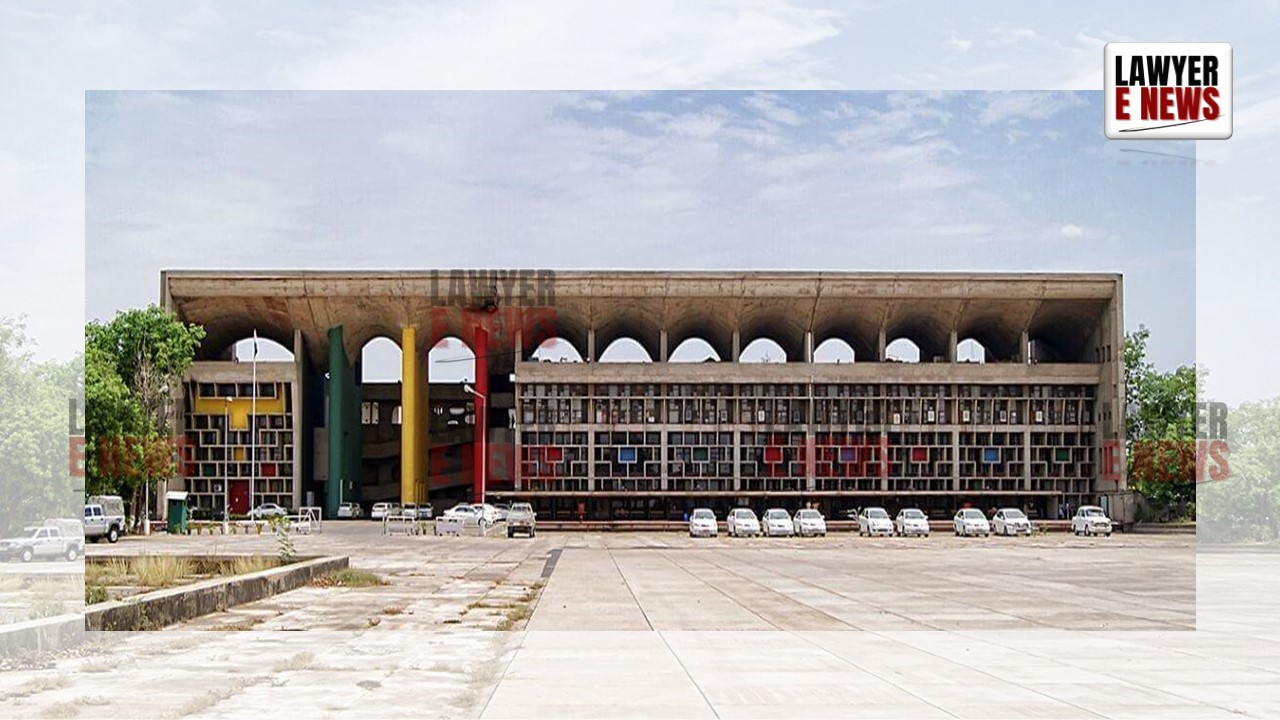-
by Admin
15 February 2026 5:35 AM



Allegations Baseless and Improbable; No Offence Made Out - Punjab and Haryana High Court quashed a criminal complaint and summoning order filed against Mugdha Sharad Palav (also known as Mugdha Tejas Sule and Sharan Walia) for charges including bigamy, fraud, and conspiracy. Justice N.S. Shekhawat exercised the court’s inherent powers under Section 482 of the Code of Criminal Procedure, 1973 (Cr.P.C.), finding that the allegations lacked prima facie evidence, were jurisdictionally flawed, and amounted to an abuse of the judicial process.
The complaint, filed by the respondent Rishu Pal Walia through his brother and Power of Attorney holder, alleged offences under Sections 406, 420, 465, 466, 468, 471, 494, 506, and 120-B of the Indian Penal Code (IPC). The court ruled that the complaint and all subsequent proceedings were liable to be quashed.
The petitioner and the respondent married on August 31, 2019, in Maharashtra. The petitioner had previously been married to Tejas Sule and divorced him in 2012 through a decree granted by a UK court. The petitioner disclosed her prior divorce to the respondent before their marriage. However, the respondent, a non-resident Indian living in England, later alleged that the petitioner committed bigamy by concealing her first marriage. The couple lived together in England until domestic disputes arose in 2021, culminating in the respondent’s arrest for domestic violence by UK authorities. A UK family court later granted a divorce to the petitioner in January 2023.
The respondent filed the criminal complaint in Jalandhar through his brother, alleging bigamy, fraud, and other offences. The Judicial Magistrate First Class, Jalandhar, summoned the petitioner under several IPC provisions, including Section 494 (bigamy).
Lack of Jurisdiction and Sanction under Section 188 Cr.P.C.
The court held that the alleged offences occurred primarily in England, where the couple resided. Since the marriage was solemnized in Maharashtra and the alleged offences had no connection with Punjab, the Jalandhar court lacked territorial jurisdiction. Citing Harmanpreet Singh Ahluwalia v. State of Punjab (2009), the court reiterated that Indian courts cannot assume jurisdiction over offences committed abroad unless the Central Government grants sanction under Section 188 Cr.P.C. The respondent had not obtained such sanction.
“It is apparent that the major part of the offence was committed in England itself, and the courts at Jalandhar had no jurisdiction to entertain the complaint,” the court stated.
The court examined the allegations under Section 494 IPC and found no evidence to substantiate the charge of bigamy. It observed that the petitioner had disclosed her prior divorce before marriage, and the respondent knowingly entered into the marriage.
Additionally, the court noted the respondent’s own history of multiple marriages. Evidence presented showed that the respondent had been married twice before and had failed to disclose these marriages to the petitioner. This included a marriage to Pooja Walia in 2003 and another to Attilane Farkas in 2013, both of which were concealed during his marriage to the petitioner.
“The allegations leveled in the present complaint clearly prove that there was matrimonial discord between the petitioner and the respondent, but the complaint does not disclose any cognizable offence,” the court remarked.
The court characterized the complaint as a malicious attempt by the respondent to harass the petitioner. It noted that the respondent had filed the complaint through his Power of Attorney holder in Jalandhar, despite the matrimonial dispute being primarily based in England. The court relied on the Supreme Court’s principles in State of Haryana v. Bhajan Lal (1991), which identified cases warranting quashing where allegations are baseless, jurisdictionally flawed, or motivated by malice.
“This is a clear misuse of the process of law. The allegations are baseless and improbable, and the complaint is manifestly attended with malafide intentions,” the court observed.
The court invoked its inherent powers to prevent abuse of the legal process and secure the ends of justice. Citing Madhu Limaye v. State of Maharashtra (1977), the court emphasized that inherent powers can be exercised to quash proceedings that are vexatious or lacking jurisdiction.
“Where the allegations in the complaint, even if taken at face value, do not constitute any offence, the court must intervene to prevent abuse of the judicial process,” the court held.
The Punjab and Haryana High Court quashed the criminal complaint, the summoning order dated May 6, 2022, and all subsequent proceedings. The petition was allowed in its entirety.
The ruling underscores the limits of jurisdiction in cases involving matrimonial disputes with international elements. It also highlights the court’s role in preventing misuse of the criminal justice system for personal vendettas. By emphasizing the need for prima facie evidence and jurisdictional compliance, the judgment sets an important precedent for cases involving cross-border disputes.
Date of Decision: December 2, 2024
